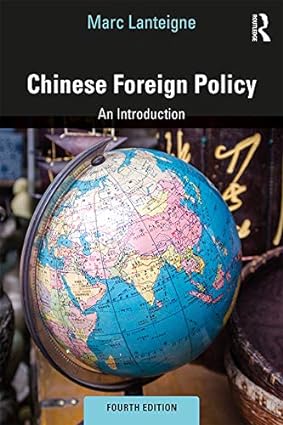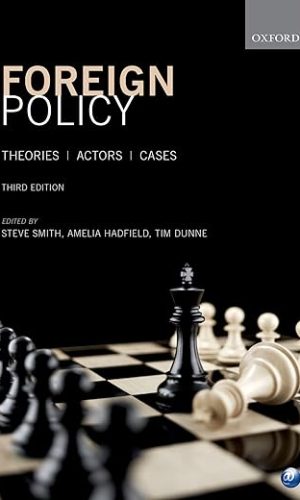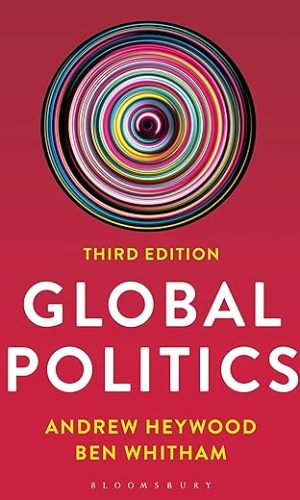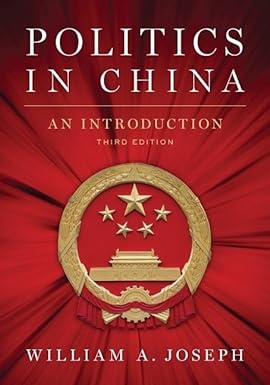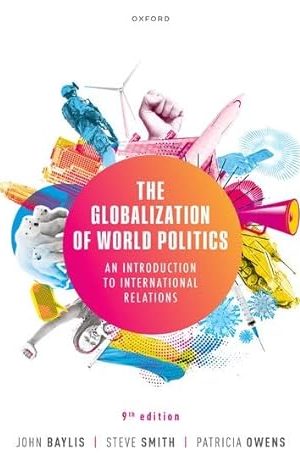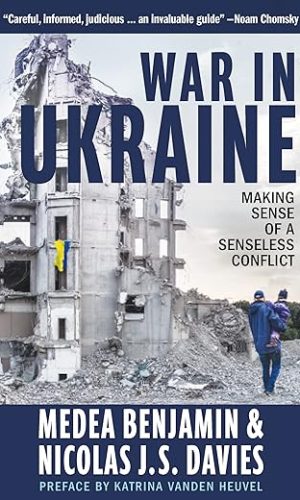International Relations
-
Apocalypse How?: Technology and the Threat of Disaster
‘Entertaining and insightful’ — Evening Standard
‘One of the most important books of the year… Compelling’ Jamie Bartlett, Literary Review
‘Timely’ — New StatesmanAs the world becomes better connected and we grow ever more dependent on technology, the risks to our infrastructure are multiplying. Whether it’s a hostile state striking the national grid (like Russia did with Ukraine in 2016) or a freak solar storm, our systems have become so interlinked that if one part goes down the rest topple like dominoes.
In this groundbreaking book, former government minister Oliver Letwin looks ten years into the future and imagines a UK in which the national grid has collapsed. Reliant on the internet, automated electric cars, voice-over IP, GPS, and the internet of things, law and order would disintegrate. Taking us from high-level government meetings to elderly citizens waiting in vain for their carers, this book is a wake up call for why we should question our unshakeable faith in technology. But it’s much more than that: Letwin uses his vast experience in government to outline how businesses and government should respond to catastrophic black swan events that seem distant and implausible – until they occur.Read more
£4.10 -
Brexitland: Identity, Diversity and the Reshaping of British Politics
Long-term social and demographic changes – and the conflicts they create – continue to transform British politics. In this accessible and authoritative book Sobolewska and Ford show how deep the roots of this polarisation and volatility run, drawing out decades of educational expansion and rising ethnic diversity as key drivers in the emergence of new divides within the British electorate over immigration, identity and diversity. They argue that choices made by political parties from the New Labour era onwards have mobilised these divisions into politics, first through conflicts over immigration, then through conflicts over the European Union, culminating in the 2016 EU referendum. Providing a comprehensive and far-reaching view of a country in turmoil, Brexitland explains how and why this happened, for students, researchers, and anyone who wants to better understand the remarkable political times in which we live.Read more
£9.90£11.40 -
China Incorporated: The Politics of a World Where China is Number One
Is the West prepared for a world where power is shared with China? A world in which China asserts the same level of global leadership that the USA currently assumes? And can we learn to embrace Chinese political culture, as China learned to embrace ours?Here, one of the world’s leading voices on China, Kerry Brown, takes us past the tired cliches and inside the Chinese leadership – as they lay out a roadmap for working in a world in which China shares dominance with the West.
From how, and why, China as a dominant superpower has been inevitable for many years, to how the attempts to fight the old battles are over, Brown digs deeper into the problematic nature of China’s current situation – its treatment of dissent, of Xinjiang, Hong Kong, and the severe limitations on its management of relations with other cultures and values. These issues impact the way the West sees China, China sees the West, and how both see themselves.
There are obstacles to the West accepting a more prominent place for China in the world – but just because this will be a difficult process does not mean that it should not happen. As Kerry Brown writes: history is indeed ending, but not how the West thought it would.
Read more
£15.20£19.00 -
Chinese Foreign Policy: An Introduction
This updated and expanded fourth edition of Chinese Foreign Policy seeks to examine the decision-makers, processes, and rationales behind China’s expanding international relations as well as offering an in-depth look at China’s modern global relations.
Among the key issues explored in this edition are:
- The further expansion of Chinese foreign policy from regional (Asia-Pacific) to international interests;
- How the government of Xi Jinping has pursued a more confident great power foreign policy agenda;
- China’s growing economic power in an era of global financial uncertainty and the return of protectionism;
- Modern security challenges, including counter-terrorism, cyber-security, maritime power, military reform and modernisation, and the protection of overseas economic interests;
- China’s shifting power relationship with the United States under President Donald Trump;
- The deeper engagement of Beijing with a growing number of international and regional institutions and legal affairs;
- Cross-regional diplomacy, including updated sections on Africa, Latin America, the Middle East, and Russia / Eurasia, as well as Oceania and the Polar regions;
- The development of the Belt and Road Initiative (BRI) as a centrepiece of China’s foreign policy.
This book will be essential reading for students of Chinese foreign policy and Asian international relations (IR), and is highly recommended for students of diplomacy, international security, and IR in general.
Read more
£30.80 -
Foreign Policy: Theories, Actors, Cases
This ground breaking text provides the ideal introduction to the ever-changing field of foreign policy. With a unique combination of theories, actors and cases in a single volume, the expert contributors provide students with a valuable and accessible introduction to what foreign policy is and how it is conducted.
With an emphasis throughout on grounding theory in empirical examples, the textbook features a section dedicated to relevant and topical case studies where foreign policy analysis approaches and theories are applied.
The expert team of contributors clearly conveys the connection between international relations theory, political science, and the development of foreign policy analysis, emphasizing the key debates in the academic community.The text is accompanied by an Online Resource Centre, which provides additional resources for both lecturers and students.
For students:
– Expand your reading with web links organized by chapter that point you to pertinent articles and useful websites.
– Test your understanding of key terms with the flashcard glossary.
– Explore the evolution of foreign policy analysis by following an interactive timeline
For lecturers:
– Use the adaptable PowerPoint slides as the basis for lecture presentations, or as hand-outs in class.
– Find out how to use case studies in your teaching with our guide to using case studies
– Use the simulation exercises to help your students explore negotiations and debatesRead more
£33.80£38.00Foreign Policy: Theories, Actors, Cases
£33.80£38.00 -
Global Politics
This systematic and integrated analysis of the theory and practice of contemporary international relations, covers traditional and critical theory, core issues and recent developments in the field. Diversified and dewesternised, this new edition takes an impartial, global approach and considers a broad range of issues and actors. It places traditional Western thinkers in their historical context and brings in new, critical voices to show what the field of IR looks like today. A new critical theories chapter, expanded ‘Approaches To…’ boxes and accounts of the latest scholarship give readers a nuanced and pluralistic overview of IR theory. Updated empirical case studies bring the subject matter to life, and show how concepts and theories apply in practice.Revised and updated by new co-author Ben Whitham, this new edition offers:
– Updated key developments, from important social movements such as Black Lives Matter and MeToo to coverage of resurgent ethno-politics and nationalisms
– Full page case studies of ‘Global Politics in Action’, illuminating major events in world affairs
– ‘Global Actor’ case studies considering the nature and significance of key players on the world stage, from Google to the G-20
– ‘Focus on’ and ‘Debating’ features looking closely at issues and approaches and enable readers to develop their own critical skills
– ‘Key Concepts’ boxes and a marginal glossary, along with discussion questions and suggestions for further reading aid study and reinforce learning
– Online resources with materials for both lecturers and students, offering exam questions, PowerPoint slides, online-only case-studies, self-test questions, and more.This is the ideal text for lecturers and students looking for a broad, contemporary and inspiring overview of global politics today.
Read more
£30.40£35.10Global Politics
£30.40£35.10 -
Global Politics: Myths and Mysteries
– How does politics affect you in everyday life?
– What is power and who has it?
– Has the age of empire come to an end?
– Is capitalism the only viable economic system?Politics is all around us. Global Politics: Myths and Mysteries teaches students that their understanding of the political world is already theoretical, and equips them with the tools to become critical and independent thinkers. Unlike other textbooks on the market, students are invited to actively engage with the questions that shape international politics, such as ‘what power relations are you taking part in?’; ‘which actors besides the state are important at the global level?’ and ‘what power do you have to bring about change in global politics?’.
This innovative pedagogical approach unveils a series of entrenched myths and mysteries in global politics in an accessible and engaging way. The text is structured into eleven chapters that cover key issues or ‘myths’ relating to global politics; students are invited to think critically and theoretically about each of these, whilst drawing on their existing knowledge of politics.
A range of learning features throughout, such as integrated case studies, and reflective activities, help readers to build a foundational knowledge of key concepts in international relations. In addition, a suite of accompanying online resources – including web links, additional case studies and reading lists – help students to take their learning further.
Digital formats and resources
Global Politics: Myths and Mysteries is available for students and institutions to purchase in a variety of formats, and is supported by online resources.
· The e-book offers a mobile experience and convenient access along with hyperlinks to carefully selected lists of web-links, and an additional reading list, to help you broaden your knowledge and understanding of international relations: www.oxfordtextbooks.co.uk/ebooks
· Student resources: a library of web links, an annotated reading guide, and additional case studies are available online.
Lecturer resources: seminar questions and activities, essay questions, and PowerPoint slides for each chapter are available online.Read more
£27.90£31.30Global Politics: Myths and Mysteries
£27.90£31.30 -
Mountbatten’s Samurai: Imperial Japanese Army and Navy Forces under British Control in Southeast Asia, 1945-1948
‘This is an important book that uncovers some remarkable secrets… Connor is an outstanding historian of wartime Asia and he tells his story well.’ Richard J. Aldrich, author of GCHQ: The Uncensored Story of Britain’s Most Secret Intelligence Agency.
Six weeks after Japan’s surrender in August 1945, British and Japanese troops were fighting side-by-side against nationalist revolutionaries in ‘peacekeeping’ operations in Indonesia and Vietnam. In Java, Dutch civilians cheered as their former jailors, members of the infamous kenpeitai rescued them from what had seemed certain death at the hands of armed mobs. In November 1945 a Japanese Army officer was recommended for a British Distinguished Service Order (DSO) for services rendered to South-East Asia Command after his troops helped restore order and save thousands of civilian lives.
‘The Japanese may be so deployed and…drastic action including shooting should be taken against any who refuse’. Admiral Mountbatten (to War Office), Kandy, 24 August 1945.
‘The men concerned are surely Japanese prisoners-of-war and if the War Office, in order to evade compliance with the Geneva Convention, have decided to call them something else, this should not…avoid responsibility for decent treatment.’ Foreign Office, London, 18 March 1946.
In August 1945 Britain accepted responsibility for the care and repatriation of over 750,000 Japanese military personnel in Southeast Asia. Short of manpower and resources in Burma and Malaya, and with its French and Dutch Allies’ colonial territories of Indo-China (FIC) and the Netherlands East Indies (NEI) embroiled in revolution, Britain found it expedient to press the Japanese-who were denied Prisoner of War (PoW) status-into military operations in support of European colonial interests and then ignore repatriation commitments by deliberately retaining over 100,000 as mass, unpaid labour.
‘[A] stain which would blemish the honor of the United Kingdom…’ General Douglas MacArthur, Tokyo, March 1947.
Mountbatten’s Samurai reveals a Britain struggling to match Great Power status and obligation without a Great Power budget or capability in Southeast Asia in the face of strong criticism from the US State Department in Washington, General Douglas MacArthur’s SCAP GHQ Occupation headquarters in Tokyo, the International Committee for the Red Cross (ICRC), the Japanese Government and even the Vatican.
‘A perceptive and shrewd analysis of the prolonged and secret diplomatic stand-off between London and Washington over Britain’s post-war use of tens of thousands of surrendered Japanese in combat operations in support of European colonial interests in contravention of the Geneva Convention, and later as deliberately retained, unpaid labour in breach of the Potsdam Agreement’. (Publisher’s Catalogue)
Read more
£28.50 -
Politics in China: An Introduction, Third Edition
On October 1, 2009, the People’s Republic of China (PRC) celebrated the 60th anniversary of its founding. And what an eventful and tumultuous six decades it had been. During that time, under the leadership of the Chinese Communist Party (CCP), China was transformed from one of the world’s poorest countries into the world’s fastest growing major economy, and from a weak state barely able to govern or protect its own territory to a rising power that is challenging the United States for global influence.Over those same years, the PRC also experienced the most deadly famine in human history, caused largely by the actions and inactions of its political leaders. Not long after, there was a collapse of government authority that pushed the country to the brink of (and in some places actually into) civil war and anarchy.
Today, China is, for the most part, peaceful, prospering, and proud. This is the China that was on display for the world to see during the Beijing Olympics in 2008. The CCP maintains a firm grip on power through a combination of popular support largely based on its recent record of promoting rapid economic growth and harsh repression of political opposition. Yet, the party and country face serious challenges on many fronts, including a slowing economy, environmental desecration, pervasive corruption, extreme inequalities, and a rising tide of social protest.
The third edition of Politics in China has been extensively revised, thoroughly updated, and includes a new chapter on the internet and Politics in China. It is an authoritative introduction to how the world’s most populous nation and rapidly rising global power is governed today. Written by leading China scholars, the book’s chapters offers accessible overviews of major periods in China’s modern political history from the mid-nineteenth century to the present, key topics in contemporary Chinese politics, and developments in four important areas located on China’s geographic periphery: Tibet, Xinjiang, Hong Kong, and Taiwan.
Read more
£39.80 -
The Globalization of World Politics: An Introduction to International Relations
The Globalization of World Politics is the bestselling introduction to international relations, and offers the most complete coverage of the key theories and global issues in world politics.The ninth edition has been thoroughly updated to explore the most pressing topics and challenges that dominate international relations today, including a brand-new chapter on global health, which explores the impact of the COVID-19 pandemic.
Tailored pedagogical features help students to consider key international relations arguments and debates, and apply theories and approaches to real world events, bridging the gap between theory and application. Interactive activities, such as multiple-choice questions and the opposing opinions feature, foster active learning, enhancing students’ understanding of key concepts and debates.
A diverse range of leading scholars in the field explore the history, theory, structures, and key issues in IR, providing students with an exceptionally comprehensive and clear introduction.
New to this edition:
US BLA brand new chapter 25 on global health, by Professor Sophie Harman, helps students to make sense of global health politics, and explores global health emergencies including COVID-19 and Ebola.BE UE US BLA new chapter on realism by Dr Or Rosenboim looks at realism outside the West, exploring arguments and ideas beyond the Anglo-American canon, and demonstrates the relevance of non-western realist thinkers to modern realism.BE UE
Digital formats and resources
The Globalization of World Politics is available for students and institutions to purchase in a variety of formats, and is supported by online resources.
The e-book offers a mobile experience and convenient access: www.oxfordtextbooks.co.uk/ebooksRead more
£37.00£40.80 -
The Other Great Game: The Opening of Korea and the Birth of Modern East Asia
A dramatic new telling of the dawn of modern East Asia, placing Korea at the center of a transformed world order wrought by imperial greed and devastating wars.
In the nineteenth century, Russia participated in two “great games” one, well known, pitted the tsar’s empire against Britain in Central Asia. The other, hitherto unrecognized but no less significant, saw Russia, China, and Japan vying for domination of the Korean Peninsula. In this eye-opening account, brought to life in lucid narrative prose, Sheila Miyoshi Jager argues that the contest over Korea, driven both by Korean domestic disputes and by great-power rivalry, set the course for the future of East Asia and the larger global order.
When Russia’s eastward expansion brought it to the Korean border, an impoverished but strategically located nation was wrested from centuries of isolation. Korea became a prize of two major imperial conflicts: the Sino-Japanese War at the close of the nineteenth century and the Russo-Japanese War at the beginning of the twentieth. Japan’s victories in the battle for Korea not only earned the Meiji regime its yearned-for colony but also dislodged Imperial China from centuries of regional supremacy. And the fate of the declining tsarist empire was sealed by its surprising military defeat, even as the United States and Britain sized up the new Japanese challenger.
A vivid story of two geopolitical earthquakes sharing Korea as their epicenter, The Other Great Game rewrites the script of twentieth-century rivalry in the Pacific and enriches our understanding of contemporary global affairs, from the origins of Korea’s bifurcated identity–a legacy of internal politics amid the imperial squabble–to China’s irredentist territorial ambitions and Russia’s nostalgic dreams of recovering great-power status.
Read more
£28.50£33.20 -
War in Ukraine: Making Sense of a Senseless Conflict
Russia’s brutal February 2022 invasion of Ukraine has attracted widespread condemnation across the West. Government and media circles present the conflict as a simple dichotomy between an evil empire and an innocent victim. In this concise, accessible and highly informative primer, Medea Benjamin and Nicolas Davies insist the picture is more complicated.
Yes, Russia’s aggression was reckless and, ultimately, indefensible. But the West’s reneging on promises to halt eastward expansion of NATO in the wake of the collapse of the Soviet Union played a major part in prompting Putin to act. So did the U.S. involvement in the 2014 Ukraine coup and Ukraine’s failure to implement the Minsk peace agreements. The result is a conflict that is increasingly difficult to resolve, one that could conceivably escalate into all-out war between the United States and Russia―the world’s two leading nuclear powers.
Skillfully bringing together the historical record and current analysis, War In Ukraine looks at the events leading up to the conflict, surveys the different parties involved, and weighs the risks of escalation and opportunities for peace. For anyone who wants to get beneath the heavily propagandized media coverage to an understanding of a war with consequences that could prove cataclysmic, reading this timely book will be an urgent necessity.
Read more
£10.20£12.30War in Ukraine: Making Sense of a Senseless Conflict
£10.20£12.30




